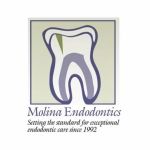Why Dental Hygiene is Important: A Comprehensive Guide
Maintaining proper dental hygiene is essential not only for having a beautiful smile but also for your overall health. Many people may not realize the impact poor dental hygiene can have on their health, affecting everything from your heart to your confidence. This guide will explore why dental hygiene is crucial and how you can take proactive steps to care for your teeth and gums.
1. The Connection Between Oral Health and General Health
Did you know that oral health is deeply linked to overall health? It's true! Poor dental hygiene can lead to several issues that affect other parts of your body. For example, gum disease, which is one of the most common oral health problems, can increase the risk of heart disease. Bacteria from the gums can enter the bloodstream and affect the heart, leading to inflammation and other cardiovascular issues.
In addition to heart disease, poor oral health can also increase the risk of respiratory infections, diabetes complications, and even some cancers. By practicing good dental hygiene, you're not just protecting your teeth and gums, but also reducing the risks of these serious health conditions.
2. The Role of Regular Brushing and Flossing
Brushing your teeth twice a day with fluoride toothpaste is the foundation of good dental hygiene. But it’s not enough to just brush—flossing plays an equally important role in removing plaque and food particles stuck between the teeth and under the gum line. Without flossing, the areas that your toothbrush can’t reach are at risk of becoming breeding grounds for bacteria.
It’s also important to replace your toothbrush every 3-4 months or sooner if the bristles are frayed. A worn-out toothbrush won't clean your teeth effectively, which can result in plaque buildup and potential gum disease.
3. How Diet Affects Your Oral Health
What you eat directly influences your dental health. Foods that are high in sugar can contribute to cavities, as sugar feeds the bacteria in your mouth. Similarly, acidic foods and drinks, like citrus fruits and soda, can erode tooth enamel over time.
To support strong teeth and gums, opt for a balanced diet rich in calcium, vitamin D, and other essential nutrients. Dairy products, leafy greens, and fortified foods can help maintain the health of your teeth and bones. Drinking plenty of water also helps rinse away food particles and keeps your mouth hydrated, which is crucial for preventing dry mouth and maintaining saliva flow.
4. Regular Dental Checkups: Why They're Crucial
Even if you maintain a rigorous daily oral care routine, regular visits to the dentist are still essential. A professional cleaning helps remove plaque and tartar buildup that brushing and flossing can't tackle. Additionally, a dentist can spot early signs of tooth decay, gum disease, or other oral health issues before they become serious problems.
Many people only visit the dentist when they have a problem, but routine checkups are crucial for maintaining long-term dental health. Regular visits allow your dentist to monitor your oral health, provide necessary treatments, and offer advice on keeping your teeth and gums in top condition.
5. The Impact of Poor Oral Hygiene on Your Confidence
Beyond the physical health risks, poor dental hygiene can also affect your self-esteem. Bad breath, yellowed teeth, and visible cavities can make people self-conscious about their appearance. This can lead to social withdrawal and even impact professional opportunities, as confidence plays a large role in making a good impression.
Taking steps to care for your oral health can boost your self-confidence. A bright smile not only improves your appearance but also enhances your overall well-being and personal interactions.
6. Simple Tips for Improving Your Dental Hygiene Routine
If you’re looking to improve your dental hygiene, here are a few simple tips:
- Brush twice a day: Make sure to brush your teeth for at least two minutes, using a fluoride toothpaste.
- Don’t skip flossing: Floss daily to clean between your teeth and along the gum line.
- Use mouthwash: Mouthwash can help reduce bacteria and freshen your breath.
- Limit sugary snacks: Reducing sugar intake can help prevent cavities and gum disease.
- Drink plenty of water: Water helps rinse away food particles and prevents dry mouth.
By following these tips, you can significantly improve your dental hygiene and protect both your teeth and your overall health.
If you're looking for the best dental products to help improve your oral health, visit Dentistry Toothtruth for the most effective tools and services to keep your teeth sparkling clean.







 West Chicago Dental Care - Dentist in West Chicago4.0 (264 review)
West Chicago Dental Care - Dentist in West Chicago4.0 (264 review) Molina Endodontics4.0 (144 review)
Molina Endodontics4.0 (144 review) Austin Dental Associates4.0 (139 review)
Austin Dental Associates4.0 (139 review) Rainier Valley Orthodontics4.0 (92 review)
Rainier Valley Orthodontics4.0 (92 review) Fox Valley Endodontic Specialists4.0 (4 review)
Fox Valley Endodontic Specialists4.0 (4 review) Bates Orthodontics - Northside Richmond5.0 (174 review)
Bates Orthodontics - Northside Richmond5.0 (174 review) The Importance of Oral Health Education During Pregnancy for a Healthy Pregnancy
The Importance of Oral Health Education During Pregnancy for a Healthy Pregnancy Best Tips for Brushing Your Teeth Properly for Healthy Gums: Essential Techniques for Oral Health
Best Tips for Brushing Your Teeth Properly for Healthy Gums: Essential Techniques for Oral Health Why Skipping Dental Checkups Can Lead to Bigger Oral Health Problems
Why Skipping Dental Checkups Can Lead to Bigger Oral Health Problems Advantages of Porcelain Dental Restorations
Advantages of Porcelain Dental Restorations How Can Diabetes Cause Tooth and Gum Problems? Preventing and Managing Oral Health Issues
How Can Diabetes Cause Tooth and Gum Problems? Preventing and Managing Oral Health Issues Healthy Habits for Promoting Good Oral Health and Hygiene: Tips for a Healthy Smile
Healthy Habits for Promoting Good Oral Health and Hygiene: Tips for a Healthy Smile